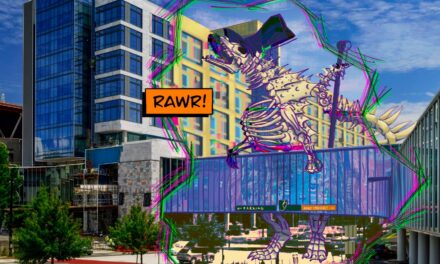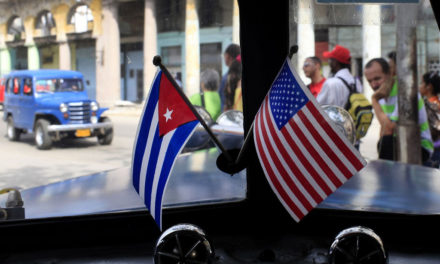I’m always at a crossroads: I’m either too brown or not brown enough. I’m too “white-washed” for not liking spicy foods and not being able to speak my native language Tamil, but too “ethnic” for learning traditional South Asian dance and having more than the socially acceptable number of South Asian friends. Even my name underscores an internal conflict — do I go by the correct pronunciation that friends have told me is “too brown”? Or do I go by the wrong pronunciation I have known my entire life, given to me by a preschool teacher who felt my real name was too difficult to learn?
The concept of a “model minority” is a blatantly racist idea that asks: if Asian Americans can work hard and achieve the American Dream, why can’t other minority groups do the same? Such rationale is utterly ludicrous; it invites a false equivalence between different minority groups and ignores history. Many Asian Americans immigrated to the U.S. under the Immigration and Naturalization Act of 1965, which favored the skilled and educated. Other minority groups, such as African Americans, have faced systemic barriers for centuries and endure exceedingly different forms of racism, including housing discrimination and police brutality. Our station in life is in no way comparable. Research shows Americans tend to generalize from high-status Asians when estimating any given ethnic group’s socioeconomic status — hyperfocusing on highly educated Asian American immigrants and ignoring the many who fled to the U.S. in hopes of securing refuge from war or poverty.
Not only does the model minority myth exacerbate racial division, but it is also deeply damaging to Asian people and further perpetuates the idea that we do not experience racism. We are expected to aspire to the unattainable goal of whiteness, and we are ignored when we speak up about the very real racism that we endure.
Much of the model minority myth stems from colorism, which institutes discrimination against darker-skinned individuals due to the belief that lighter skin equates to beauty. Brown girls are continually socialized to believe we should always strive for whiteness — from skin-lightening creams such as Unilever’s Fair & Lovely brand, the media’s portrayal of beauty and, worst of all, from our own families. When I was little, relatives constantly complimented me on the fairness of my skin, telling me to be careful in the sun because I “almost looked white and you don’t want to lose that.” I was repeatedly told that fairness was beauty and that I should always aim to be as white as possible. When I got darker, not knowing better, I wanted to scrub the brownness from my skin until it washed away.
Even socially, we are taught that we must reject any semblance of brownness. Relatives and cousins would look down on me for being friends with other South Asian girls at school, telling me that it was “weird” and I should try to be friends with white kids instead. And I’m not the only one who feels this way; colorism has been ingrained in South Asian culture for centuries, and most accept colorism and racism as unfortunate yet unavoidable byproducts of our identities. The racism and colorism prevalent in South Asian culture is only reaffirmed by the model minority myth and the idea that we should always do everything possible to become whiter. This myth does not seek to eliminate racism or recognize its deep perversion in our culture — it aims to make South Asians the token minority in white-dominated spaces.
Yet brown people are also demeaned as white-washed for acting or behaving in ways perceived to be white. In doing so, the term “white-washed” invalidates the experiences of people of color. But what are these criteria that can supposedly make someone white-washed? Buying clothes from mainstream stores? Being extroverted and loud? Not knowing every single thing about your culture, history and identity? Not fitting the stereotype of what it means to be brown doesn’t make you white-washed, it just makes you a person. Calling people white-washed is inherently problematic and seeks to further the notion that being brown is something you have to prove. South Asian identity is not a choice between being brown or white, and to suggest otherwise is utterly demeaning.
The model minority myth suggests that racism does not exist for us. It tells us to dismiss the oppression that other minority groups suffer and pretend we never face it ourselves. But that is hardly the case — partly due to President Donald Trump’s divisive language regarding COVID-19, hate crimes have spiked toward Asian Americans. Research shows that anti-Muslim sentiment has skyrocketed in the past few years, resulting in widespread hate mail, anti-Muslim graffiti, death threats and shots fired at mosques. This does not even include the microaggressions, negative stereotypes, inequality of opportunity and discrimination in the workforce that are, for us, simply the norm.
Yet despite the clear racism we face, white elites still politicize our identities. The Trump administration weaponized this myth by suing Yale University (Conn.) for allegedly discriminating against Asian American and white applicants. This lawsuit aimed to get rid of affirmative action and other diversity initiatives, claiming they decrease white and Asian American acceptance to colleges, politicizing Asian Americans’ inaccurate portrayal as a model minority. Asians are in no way underrepresented at elite institutions such as Yale — in 2019, Asians made up 19.3% of the undergraduate class despite making up about 5.9% of the U.S. population. This lawsuit pits Asian Americans against other minorities and ignores the systemic barriers that other minority groups face in comparison to Asian Americans.
Asian American identity has been politicized by Trump apologists to demean Democrats and score points for the Republican Party, all while spreading the narrative that racism is not real. Asian Americans are let into white spaces when it’s convenient, but when we face widespread discrimination, we are ignored.
We must reject the model minority myth at its root. This stems from recognizing its exacerbation of anti-Blackness and racial division. We must actively reject the notion that we must reach for whiteness, and we should evaluate how colorism and racism have infiltrated our own lives.
Even as I write this now, the model minority myth consumes me, telling me not to put my brownness on display for anyone to judge or attack. I wait for comments telling me to go back to my country, that I don’t belong here, that racism is all in my head. So all I have to say is: don’t. You wouldn’t do that to a white person. So don’t do it to me.
Brammhi Balarajan (23C) is from Las Vegas.
Brammhi Balarajan (23C) is from Las Vegas, majoring in political science and English and creative writing. She is the Editor-in-Chief of The Emory Wheel. Previously, her column "Brammhi's Ballot" won first place nationally with the Society of Professional Journalists. She has also interned with the Georgia Voice.





